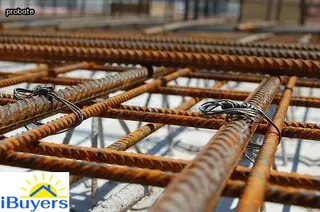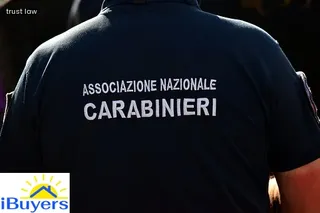Navigating probate in Montana can be a difficult process, but understanding the probate laws is essential for those dealing with real estate and estate planning. Montana law provides for a simplified process when estates are not large or complex.
It is important to understand that the court must appoint an executor or administrator before any distribution of assets can occur. The executor will be responsible for filing all necessary paperwork, including an inventory of assets and debts, as well as obtaining necessary permits or waivers from creditors.
Additionally, the executor must submit a final accounting to the court before any assets are distributed. The court will review all paperwork to ensure accuracy as well as compliance with applicable laws and regulations.
Understanding these processes and procedures is crucial to navigating probate in Montana successfully.

In Montana, when a person passes away, their estate must go through the probate process to determine how assets are distributed. Before determining if probate is necessary, it is important to understand who is responsible for managing the estate and the types of property that are subject to probate.
When a person dies with a will in place, the executor or personal representative appointed in the will has the responsibility of administering the estate. If there is no will, then an administrator appointed by the court will oversee probate proceedings.
In Montana, most real estate assets must go through this process; however, certain kinds of joint ownership can bypass probate. Additionally, assets held in living trusts or payable on death accounts may not be subject to probate either.
Ultimately, it is important to consult legal counsel in order to determine if probate is required and what steps should be taken next.
In Montana, it is possible to avoid the probate process when it comes to real estate. The probate process can be lengthy and costly for those who are looking to transfer properties, so finding ways to avoid it is beneficial.
One way to do this is by using a living trust which will help ensure that the property is transferred quickly and efficiently without going through the probate process. Another option is to title the property in joint tenancy with right of survivorship so that upon one's death, the surviving tenant receives full ownership of the property without going through probate.
Lastly, gifting real estate during one's lifetime can help prevent having to go through the probate process at all. These options provide an efficient way for individuals and families in Montana to transfer real estate without having to go through the time consuming and expensive process of probate.

When dealing with the probate process in Montana, the executor has certain rights and compensation options. An executor is typically a family member or close friend chosen by the deceased to carry out the wishes of their estate.
In Montana, it is important for an executor to be aware of their rights and responsibilities when managing a real estate probate. Executors are entitled to a reasonable fee for their time and effort, which is based on the size of the estate and can range from 2-5% depending on circumstances.
Furthermore, they have the right to seek legal advice from an attorney if needed. The role of an executor involves inventorying assets, collecting debts owed to the decedent, paying necessary expenses and taxes, as well as distributing remaining assets according to the will or intestacy laws.
It is important for an executor to understand their duties in order to properly manage a real estate probate in Montana.
The length of probate process in Montana is largely determined by the complexity of the estate being settled. Typically, probate will take a minimum of six months, but it can stretch out to two years or longer if there are special circumstances such as contesting wills or multiple creditors that need to be paid.
It is important to remember that each case is unique and the length of probate process may vary depending on numerous factors. The court must take into consideration the assets of the deceased, any outstanding debts, tax implications, beneficiary rights, and other issues such as guardianship of minors before settling an estate.
It is also important to note that while Montana law dictates the basic steps of probate proceedings, individual courts may have specific rules and procedures in place that could affect the amount of time it takes to complete the process. Real estate lawyers experienced in navigating probate processes in Montana can help ensure that all parties involved understand their rights and obligations under state law so that cases can be resolved efficiently.

In Montana, the probate process is required for all estates that exceed a certain value. Assets like real estate, stocks and bonds, bank accounts, and other personal property are all subject to the probate process if they are over the set limit.
Any estate with an estimated value of more than $50,000 must go through probate proceedings in order for it to be distributed among the heirs or beneficiaries. It is important to understand what must be included in a Montana estate in order for it to require probate proceedings.
Additionally, there are certain types of trusts that may also require probate proceedings in Montana. This includes trust instruments that have been drafted without provisions for avoiding probate court or trust funds that contain non-probated assets.
In any case, it is essential to make sure all estates requiring probate proceedings in Montana are handled properly.
Wills are an important document to have in place when dealing with real estate and probate in Montana. Without one, the state's probate process can become a complicated and lengthy process.
It is important to understand how to navigate the probate process in Montana and how wills play a role in that. A will is essentially a legal document that states who inherits a person's property, assets, debts, and other financial matters after they pass away.
Having this document created by an experienced attorney ensures that your wishes are legally binding and will be followed accordingly. The probate court will follow the instructions laid out in the will as it works through the estate of the deceased person.
This includes determining who is entitled to what portion of their assets and any other necessary steps required by law. Additionally, if there are any disputes among family members or creditors, the court may intervene and make decisions based on evidence presented before it.
Understanding how wills factor into real estate and probate in Montana is essential for anyone looking to ensure their wishes are followed so that their loved ones can easily access their property after they pass away.

In Montana, it is possible to settle an estate without going through the probate process. Estates can be settled in a variety of ways depending on how much property is involved and the size of the estate.
For example, if there are no real estate holdings or other assets beyond a certain value, then probate may not be necessary. In addition, when all beneficiaries agree and sign documents attesting to their agreement, any estate can be divided up among them without going through probate.
Another way to settle an estate without probate is by filing an affidavit with the court that states all heirs have been located and notified of the estate and its contents. Finally, it may also be possible to avoid probate by transferring certain property into trusts or other legal entities prior to death that would pass directly to the beneficiaries upon death.
Regardless of which approach is taken, it's important to consult with a qualified professional such as an attorney or financial advisor before proceeding in order to ensure that all laws and regulations are adhered to correctly.
The probate process in Montana can seem like a daunting task, especially when dealing with the death of a loved one. It is important to understand the timeline for filing probate after death in the state in order to ensure that the estate is handled properly and all assets are distributed according to the wishes of the deceased.
In Montana, if an individual dies intestate (without a will), then their estate must go through probate proceedings. The first step is to file a petition with the District Court within four months of the date of death.
A personal representative will be appointed by the court to manage the estate and they must give notice to creditors and any other interested parties. It is also important to note that there may be tax implications or other obligations that need to be taken into consideration during this time period.
The personal representative will then collect all assets, pay debts and taxes, and distribute any remaining property as prescribed by law or as directed by a valid will. The entire process typically takes six months but can vary depending on the size and complexity of an estate.
Understanding this timeline is essential when navigating real estate and probate in Montana.

Navigating the legal system in Montana can be a daunting task, especially when it comes to real estate and probate court cases. It is important to understand the process and ensure all parties involved are taken care of throughout the duration of the case.
Probate cases in Montana involve making sure that a deceased person's assets are distributed correctly to their beneficiaries, which can be a lengthy process. To begin, you must file a petition with the court and receive permission from them to open up the estate or trust.
You will then need to determine who the heirs or beneficiaries are and how much they will receive. The executor will also need to collect any assets due to the estate or trust, including real estate holdings, investments, bank accounts etc.
After collecting all applicable assets, you must pay off any outstanding debts before distributing anything to beneficiaries. During this process it is important for executors to remain organized and keep accurate records of all documents related to the case in order to avoid complications down the line.
The Montana Probate Code outlines the relevant statutory law governing real estate and probate matters in the state. Property, including real estate, is subject to a number of laws that can be complex and difficult to navigate for those with minimal legal experience.
Understanding the Montana Probate Code's requirements is essential for anyone who wishes to successfully manage a real estate probate situation in the state. The code provides an overview of all relevant laws, including those that govern wills and trusts, as well as taxation issues related to property transfers.
It also offers guidance on how to open an estate in Montana, when an executor must be appointed, what must be done with assets or debts left by a deceased person and other important details. Knowing this information can help individuals handle their own real estate probate matters without having to hire a lawyer or other professional.

By avoiding a lengthy and tax-heavy probate process in Montana, real estate owners can reap the benefits of reduced stress, cost and time. The probate process can be an arduous one for those with assets in Montana that must be distributed upon their death.
With careful planning, however, the entire process can be more streamlined and less taxing. Working with experienced legal professionals familiar with the specific laws of Montana regarding real estate and probate is an essential step to ensure a smooth transition and minimal burden on heirs.
The combination of an efficient plan paired with knowledgeable advice from a legal expert will help to avoid unnecessary delays and fees resulting from a drawn-out probate process. Additionally, it is important to consider the right type of ownership structure when it comes to real estate in order to ensure that all assets are properly distributed according to the owner’s wishes.
Knowing how best to manage real estate assets while living or after death is key in order to minimize tax liabilities while preserving wealth for future generations.
Estate planning is a critical part of protecting your family's future, but it can be especially complex when real estate and probate are involved. Navigating the Montana probate process requires preparing in advance, as well as understanding the laws and regulations governing the process.
To ensure your loved ones are protected, you may want to consider advanced estate planning tactics such as creating a living trust or revocable living trust. A living trust allows you to manage assets during your lifetime and transfer them to a designated beneficiary upon death without going through the court system.
Additionally, if you have children or other dependents who may need financial support in the future, setting up a guardianship with the help of an attorney can help provide financial stability after you're gone. It's important to understand that while these advanced strategies may provide more security and protection for your family, they also require additional time and resources to set up correctly.
Consulting with an experienced real estate attorney can help guide you in making the best decisions for your family's future.

When planning an estate, it is important to understand the key documents necessary to ensure your wishes are carried out. The most important documents are wills, trusts, and powers of attorney.
A will is a legal document that details how you want your assets distributed when you die. Trusts are created to provide asset protection and tax benefits for beneficiaries, and can also be used to provide for minors or disabled individuals.
Powers of Attorney grant someone else the authority to make financial decisions on behalf of the person granting them. Other documents may include health care directives, living wills, beneficiary designations, and prenuptial agreements.
Knowing which documents are necessary for your particular estate plan is critical to navigating the probate process in Montana. It is best to consult with an attorney experienced in real estate and probate law to ensure all necessary documents are completed properly.
In Montana, probate is a legal process that must be followed in order to transfer the assets of a deceased person's estate according to the terms of their will or, if there is no will, according to state law. The probate process requires that all debts and taxes owed by the deceased be settled and that all remaining assets be distributed as intended.
Probate can take several months or even years to complete depending on the complexity of the estate. However, in Montana, not every estate needs to go through probate.
If an estate meets certain criteria, it may be eligible for a simplified probate procedure that can reduce the time it takes for assets to be transferred. For example, an estate with total assets valued at less than $50,000 may qualify for simplified probate procedures.
Additionally, estates with only real property (such as real estate) typically do not need to go through probate unless there are other disputes or creditors involved. Knowing how to navigate the probate process in Montana can save families time and money as they transition into life without their loved one.

In Montana, there are two primary types of probate that you may need to navigate during the real estate and probate process. The first type is known as formal probate, which requires the filing of a formal petition in court for the transfer and distribution of a deceased person's assets.
This type of probate is often used when no valid will exists or when disputes arise over the validity of a will or its provisions. The second type of probate is known as informal probate, which allows certain assets to be transferred without going through the court system if certain requirements are met.
Informal probate can be much quicker and less expensive than formal probate, but it does not allow for disputes to be resolved by the courts. Knowing which type of probate is necessary can help you in navigating the real estate and probate process in Montana and ensuring that your loved one's wishes are respected.
In Montana, the probate threshold is set at $50,000. If the estate of a deceased person is valued at $50,000 or more, the court must open an estate through the probate process.
The probate process in Montana involves filing paperwork with the court, obtaining an order to administer the estate, and distributing assets to beneficiaries as directed by a will or according to state law if there is no valid will. During this process, an executor is appointed to manage the estate's assets and liabilities.
It's important for those involved in real estate and probate matters in Montana to understand how to navigate the probate process in order to protect their interests.
Montana is not a right of survivorship state and the probate process must be followed in order to transfer real estate after the death of an owner. The process can be lengthy and complex, so it’s important to understand the laws surrounding real estate and probate in Montana.
The first step is determining if there was a valid will or trust in place. If one exists, it will dictate how the property should be divided.
If no will or trust is present, then the state’s intestacy laws will apply, which may require formal administration through probate court. It’s also important to know who has priority rights to inherit real estate; typically this includes a surviving spouse, children, siblings and parents.
Knowing your rights as an heir or beneficiary can help ensure that you receive your rightful inheritance in accordance with Montana law.